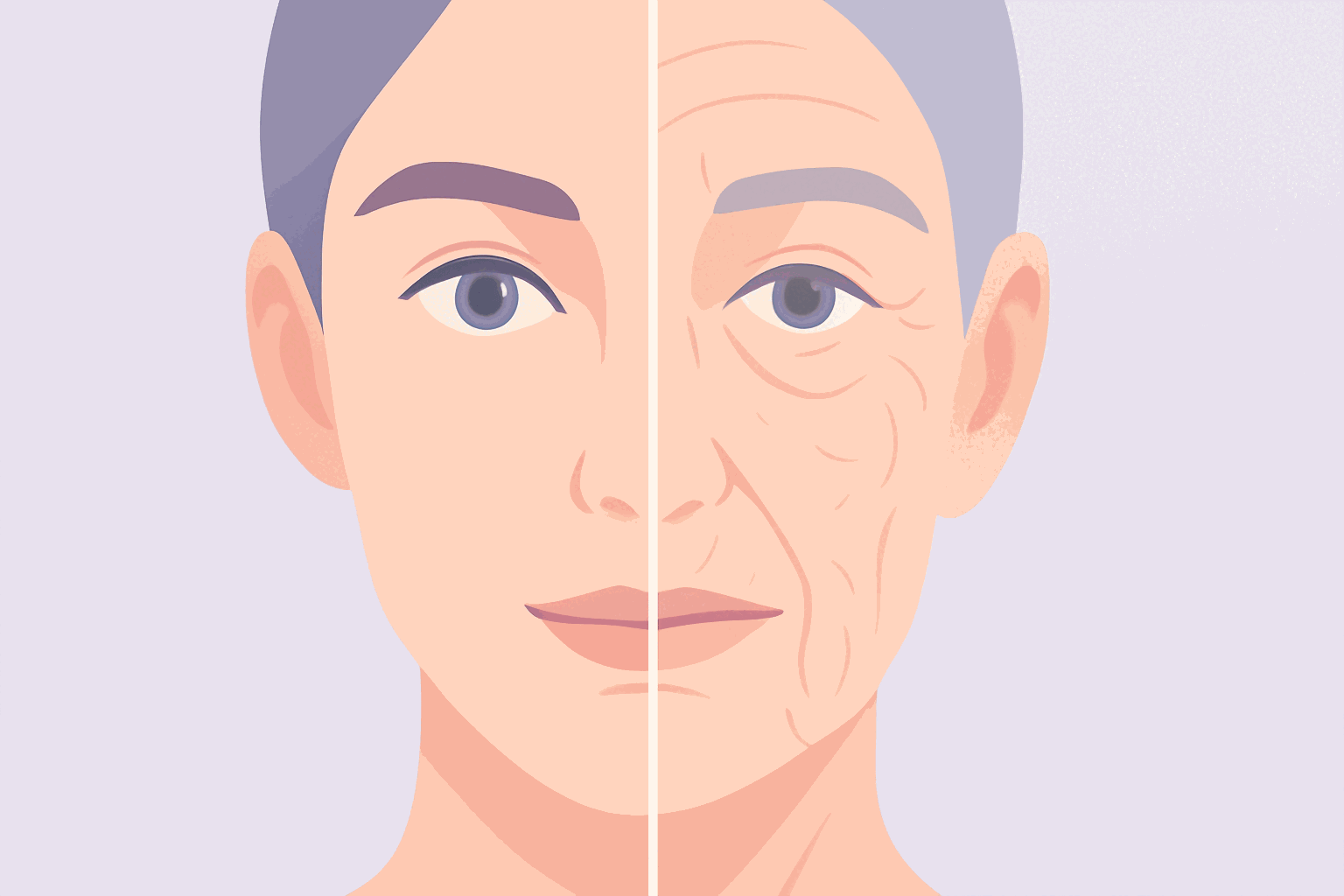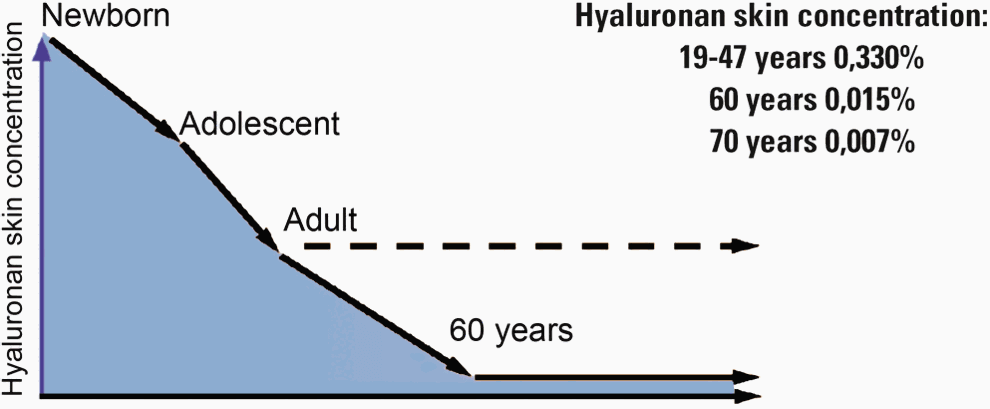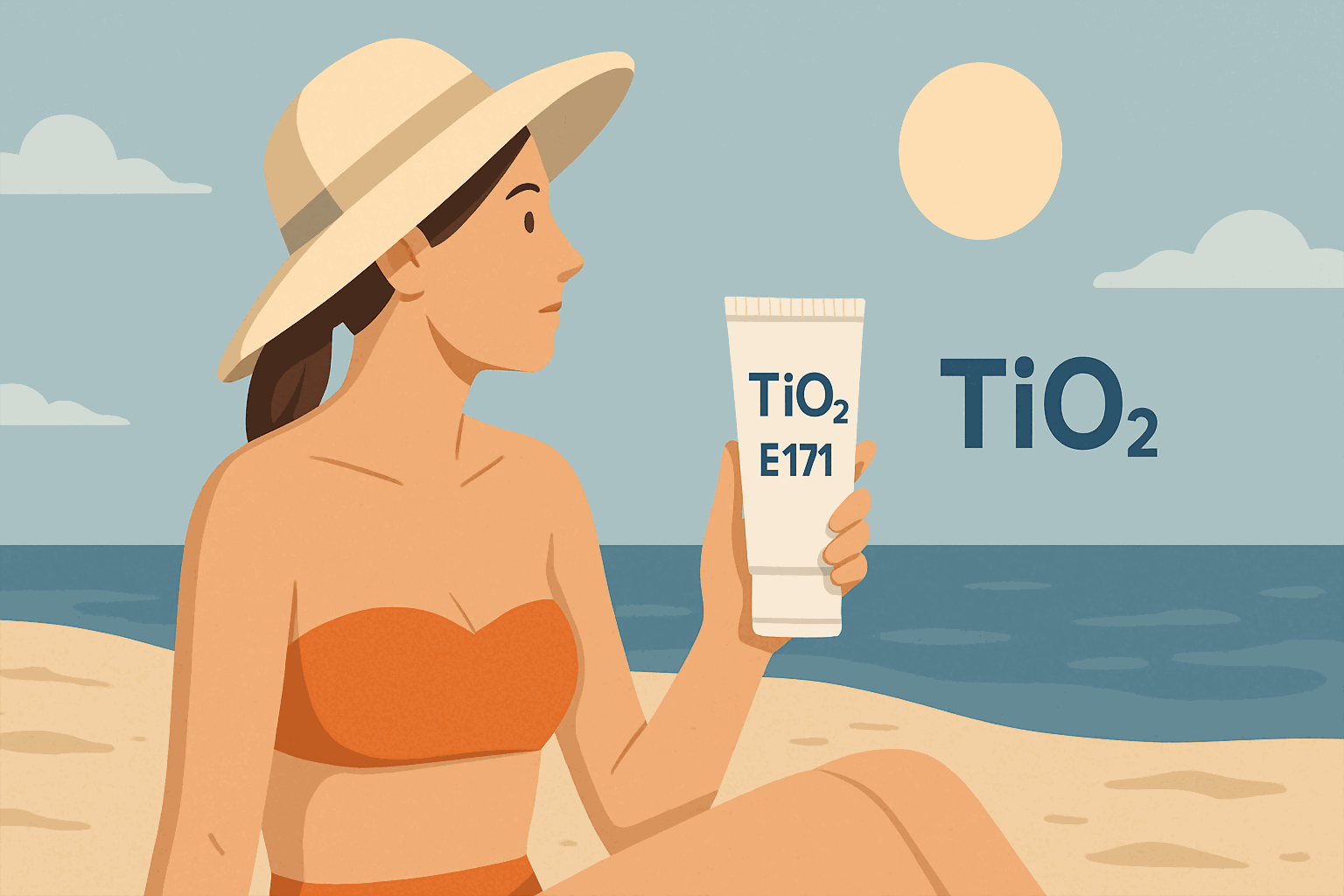
Hyaluronic Acid and Skin Health: What Science Says
- Olivia Hart
- Skincare , Supplements , Anti aging
- May 14, 2025
Table of Contents
Fast Facts: Hyaluronic Acid & Skin Health (TL;DR)
- Natural Moisturizer: Hyaluronic Acid (HA) is a substance naturally found in your skin, joints, and connective tissues, crucial for hydration and elasticity.
- Oral HA Benefits: Clinical studies show oral HA supplements (around 120 mg/day) can significantly reduce wrinkles, improve skin smoothness, and boost hydration within 8-12 weeks.
- Absorption is Key: Low-molecular-weight HA (e.g., 5–50 kDa) is better absorbed by the body when taken orally, reaching skin tissues effectively.
- How it Works: HA aids skin repair, promotes collagen-producing cells (fibroblasts), and strengthens the skin’s barrier function.
- Safe & Synergistic: Generally well-tolerated, HA works best when combined with UV protection, a healthy diet, and good sleep. Consult a healthcare provider before starting.
Hyaluronic Acid and Skin Health: What Science Says About Its Benefits
Hyaluronic acid (HA) has cemented its place as a star ingredient in skincare and a popular dietary supplement. But beyond the marketing hype, what does rigorous scientific research reveal about its true impact on skin health? This article delves into the evidence-based benefits of hyaluronic acid, exploring its mechanisms for improving skin hydration, reducing wrinkles, and enhancing elasticity, offering practical, science-backed advice for incorporating it into your health regimen.
What Is Hyaluronic Acid? The Body’s Natural Hydrator
Hyaluronic acid, also known as hyaluronan, is a glycosaminoglycan – a long, unbranched carbohydrate chain. It’s a naturally occurring substance found throughout the human body, with the highest concentrations in the skin (nearly 50% of the body’s total HA), synovial fluid of joints, and connective tissues [3].
Its primary biological role is to bind and retain water molecules, making it an exceptional natural moisturizer. Think of HA as a “moisture magnet”; a single molecule can hold up to 1,000 times its weight in water. This unique property keeps tissues hydrated, lubricated, and voluminous.
While traditionally a mainstay in topical skincare serums and creams for its surface hydration effects, compelling research now highlights the potential benefits of oral HA supplementation for deeper, systemic skin health improvements.
The Science of HA in Skin: Mechanisms of Action
Hyaluronic acid’s benefits for the skin extend beyond simple hydration. Its interaction with the skin is complex and multifaceted.
More Than Just Moisture: Key Receptors and Cellular Impact
HA influences skin cells by binding to specific receptors on their surfaces, such as CD44 and the Receptor for Hyaluronan-Mediated Motility (RHAMM). This interaction can trigger various cellular responses crucial for skin health [5]:
- Stimulating Fibroblast Proliferation: Fibroblasts are key cells in the dermis responsible for producing collagen and elastin – proteins vital for skin structure, firmness, and elasticity. Studies suggest HA can encourage fibroblast activity, contributing to a more youthful skin architecture [6].
- Promoting Tissue Repair and Wound Healing: HA plays a significant role in all phases of wound healing, including inflammation, cell proliferation, and tissue remodeling.
- Enhancing Epidermal Barrier Function: A strong epidermal barrier is essential for healthy skin. It prevents excessive water loss (Transepidermal Water Loss - TEWL) and protects against environmental aggressors. HA helps maintain the integrity of this barrier, leading to better-retained moisture and resilience [1].
- Modulating Inflammation: HA can have anti-inflammatory effects, which are beneficial in various skin conditions and in mitigating some aspects of skin aging.
Clinical Evidence: Oral Hyaluronic Acid and Its Impact on Skin Health

A growing body of clinical research supports the use of oral hyaluronic acid supplements for tangible improvements in skin appearance and health.
1. Significant Reduction in Wrinkles and Improved Skin Texture
A noteworthy 2021 randomized, double-blind, placebo-controlled trial investigated the effects of oral HA on 40 healthy Asian adults (aged 35–64). Participants who consumed 120 mg of HA daily for 12 weeks demonstrated a significant reduction in wrinkle depth and an improvement in overall skin smoothness compared to the placebo group. The study also recorded increased hydration in the stratum corneum (the outermost layer of the skin) and a decrease in TEWL, indicating a strengthened skin barrier [1].
2. Enhanced Skin Elasticity and Firmness
Oral HA supplementation has been shown to positively influence skin elasticity. A 2017 clinical study by Oe and colleagues provided 120 mg of oral HA (with a molecular weight of 800 kDa) or a placebo to participants for 12 weeks. The HA group exhibited a statistically significant improvement in skin elasticity and a visible reduction in wrinkles compared to the placebo group, underscoring HA’s role in maintaining skin’s youthful resilience [2]. Another study also demonstrated improvements in skin hydration, elasticity, and roughness with oral HA [8].
3. Understanding Oral HA Absorption and Bioavailability
A critical question regarding oral HA supplementation is its absorption and ability to reach target tissues like the skin. Research confirms that HA is absorbed through the gastrointestinal tract. Studies, such as one by Kimura et al. (2016), indicate that orally administered HA is broken down by intestinal bacteria into smaller fragments (oligosaccharides) which are then absorbed into the bloodstream and distributed to various tissues, including the skin [4]. Low-molecular-weight forms of HA (e.g., 5–50 kDa, though some studies use higher weights with positive results) are often cited for potentially better bioavailability, although the optimal form and weight can depend on the specific product and desired outcome [6].
Practical Guide: Incorporating Hyaluronic Acid for Optimal Skin Benefits
To harness the science-backed benefits of hyaluronic acid for your skin, consider these practical, evidence-based strategies:
Recommended Dosage for Oral HA:
Consistency is Key for Visible Results:
- The dermatological benefits of oral HA, such as improved hydration and wrinkle reduction, typically become noticeable after 8–12 weeks of consistent daily intake. Discontinuing supplementation may lead to a gradual return to baseline, suggesting that long-term use might be necessary to maintain the positive effects.
Synergistic Effects: Combine with Healthy Lifestyle Habits:
- For comprehensive anti-aging and skin health, pair HA supplementation with foundational healthy habits. This includes diligent UV protection (sunscreen and protective clothing), a diet rich in antioxidants (fruits, vegetables), adequate hydration (drinking plenty of water), and sufficient quality sleep. These lifestyle factors work synergistically with HA to support skin vitality.
Choosing the Right HA Supplement: Focus on Low-Molecular-Weight (When Specified):
- As research suggests that smaller HA molecules may be more readily absorbed [4], [6], look for products that specify the molecular weight if possible, often favoring low-molecular-weight HA (LMW-HA). However, positive results have been seen with various molecular weights in clinical trials. Prioritize reputable brands that provide clear product information and quality assurance.
Important Safety Considerations:
- Oral hyaluronic acid is generally well-tolerated, with clinical trials reporting no significant adverse effects at typical dosages [1], [2]. However, as with any supplement, it is crucial to consult with a healthcare provider before starting, especially if you are pregnant, breastfeeding, have pre-existing medical conditions, or are taking other medications. (See also [9] for general supplement advice).
The Future of Hyaluronic Acid Research
While existing research on hyaluronic acid, particularly oral supplementation, is promising, the scientific community recognizes the need for further investigation. Future studies should aim to:
- Include More Diverse Populations: Many current studies have focused on specific ethnic groups (e.g., Asian populations). Broader, more diverse clinical trials are needed to confirm the universal efficacy and applicability of HA benefits across different demographics.
- Investigate Long-Term Effects and Optimal Duration: More research is required to understand the long-term impact of continuous HA supplementation beyond several months and to determine optimal usage durations for sustained benefits.
- Explore Combination Therapies: Further studies could explore the synergistic effects of hyaluronic acid when combined with other beneficial compounds like collagen, vitamins (e.g., Vitamin C), antioxidants, and other nutricosmetics [6].
- Refine Understanding of Molecular Weights: Continued research into how different molecular weights of HA are absorbed and utilized by the body for skin health could lead to more targeted and effective supplementation strategies.
Conclusion: Hyaluronic Acid – A Science-Backed Ally for Healthy Skin
Hyaluronic acid is far more than a fleeting skincare trend; it is a vital, naturally occurring molecule with substantial scientific support for its role in promoting skin health. Evidence from clinical trials indicates that oral hyaluronic acid supplementation can effectively improve skin hydration, reduce the appearance of wrinkles, and enhance skin elasticity and texture.
While topical HA provides valuable surface hydration, oral HA offers a systemic approach, nourishing the skin from within. For individuals seeking proactive, evidence-based strategies to maintain a youthful and healthy complexion, incorporating hyaluronic acid, alongside a holistic approach to wellness, can be a scientifically sound decision. Always prioritize high-quality supplements and consult with a trusted healthcare professional to tailor any new health regimen to your individual needs and ensure it aligns with your overall health strategy. (For general tips on selecting anti-aging products, see [10]).
Frequently Asked Questions (Q&A)
Q1: What are the proven benefits of taking oral hyaluronic acid for skin?
Q2: How does hyaluronic acid work to improve skin health?
Q3: Is low-molecular-weight hyaluronic acid better for skin?
Q4: Are there any side effects associated with hyaluronic acid supplements?
Q5: How long does it take to see results from hyaluronic acid supplements?
Disclaimer
The information provided on BioBrain is intended for educational purposes only and is grounded in science, common sense, and evidence-based medicine. It is not a substitute for professional medical advice, diagnosis, or treatment. Always consult a qualified healthcare provider before making significant changes to your diet, exercise routine, or overall health plan.
References
- Hsu, T. F., Su, C. H., Hsieh, Y. H., & Chiu, Y. C. (2021) "Oral Hyaluronan Relieves Wrinkles and Improves Dry Skin: A 12-Week Double-Blinded, Placebo-Controlled Study"
- Oe, M., Sakai, S., Yoshida, H., Okado, N., Kaneda, H., Masuda, Y., & Urushibata, O. (2017) "Oral hyaluronan relieves wrinkles: a double-blinded, placebo-controlled study over a 12-week period"
- Papakonstantinou, E., Roth, M., & Karakiulakis, G. (2012) "Hyaluronic acid: A key molecule in skin aging"
- Kimura, M., Maeshima, T., & Kubota, T. (2016) "Absorption of Orally Administered Hyaluronan"
- Bourguignon, L. Y. W., Ramez, M., Gilad, E., & Gelfad, M. (2014) "Hyaluronan-CD44 interaction promotes keratinocyte proliferation and matrix metalloproteinase-2 expression during fetal skin development and cutaneous wound healing"
- Bukhari, S. N. A., Roswandi, N. L., Waqas, M., Habib, H., Hussain, F., Khan, S., Sohail, M., Ramli, N. A., Thu, H. E., & Hussain, Z. (2018) "Hyaluronic acid, a promising skin rejuvenating biomedicine: A review of recent updates and pre-clinical and clinical investigations on cosmetic and nutricosmetic effects"
- Kawada, C., Yoshida, T., Yoshida, H., Matsuoka, R., Sakamoto, W., Odanaka, W., Sato, T., Yamasaki, T., Kanemitsu, T., Masuda, Y., & Urushibata, O. (2014) "Ingested hyaluronan moisturizes dry skin"
- Göllner, I., Voss, W., von Hehn, U., & Schön C. (2017) "Ingestion of an Oral Hyaluronan Solution Improves Skin Hydration, Wrinkle Reduction, Elasticity, and Skin Roughness: Results of a Clinical Study"
- National Institutes of Health (2021) "Dietary Supplements: What You Need to Know"
- American Academy of Dermatology Association (None) "How to select anti-aging skin care products"
- Imke Göllner, PhD, Werner Voss, MD (None) "Ingestion of an Oral Hyaluronan Solution Improves Skin Hydration"
Tags :
- Hyaluronic acid
- Skin health
- Skincare science
- Anti aging
- Evidence based health
- Oral hyaluronic acid benefits
- Hyaluronic acid supplements efficacy
- Skin hydration
- Wrinkle reduction
- Low molecular weight ha


